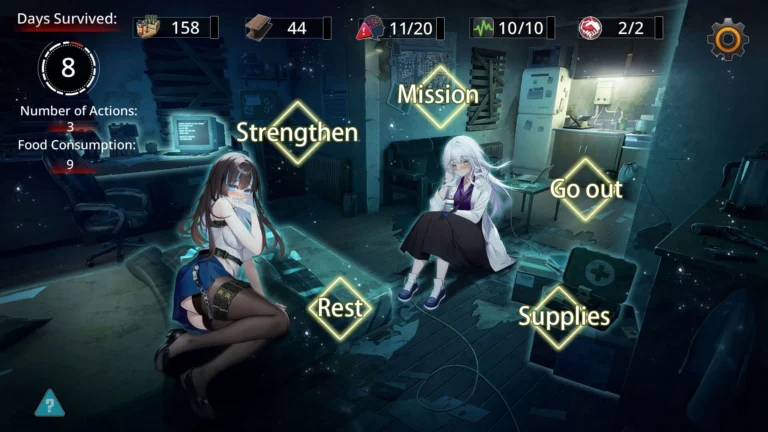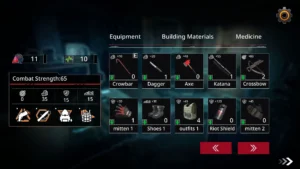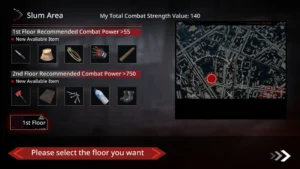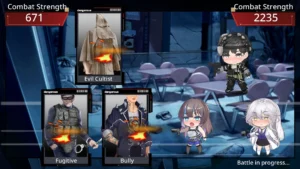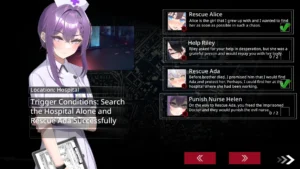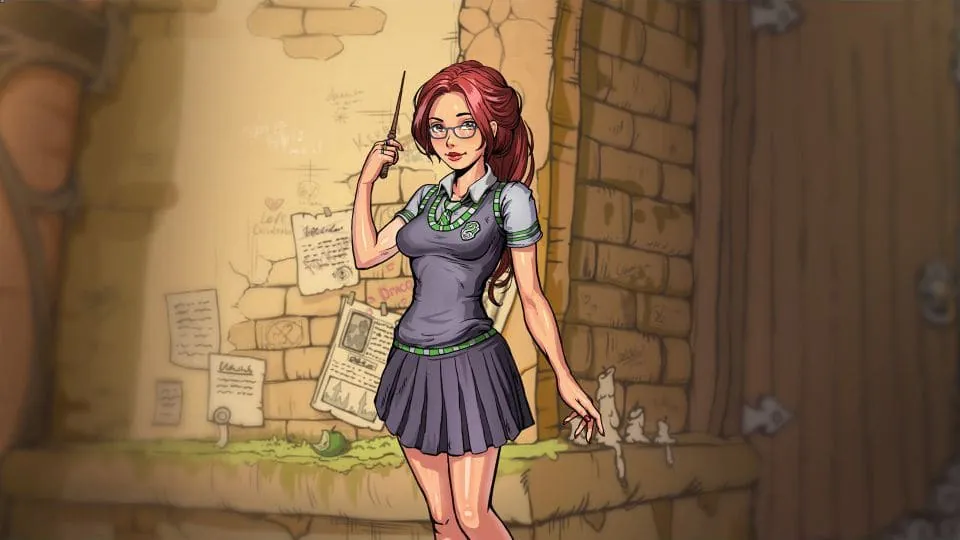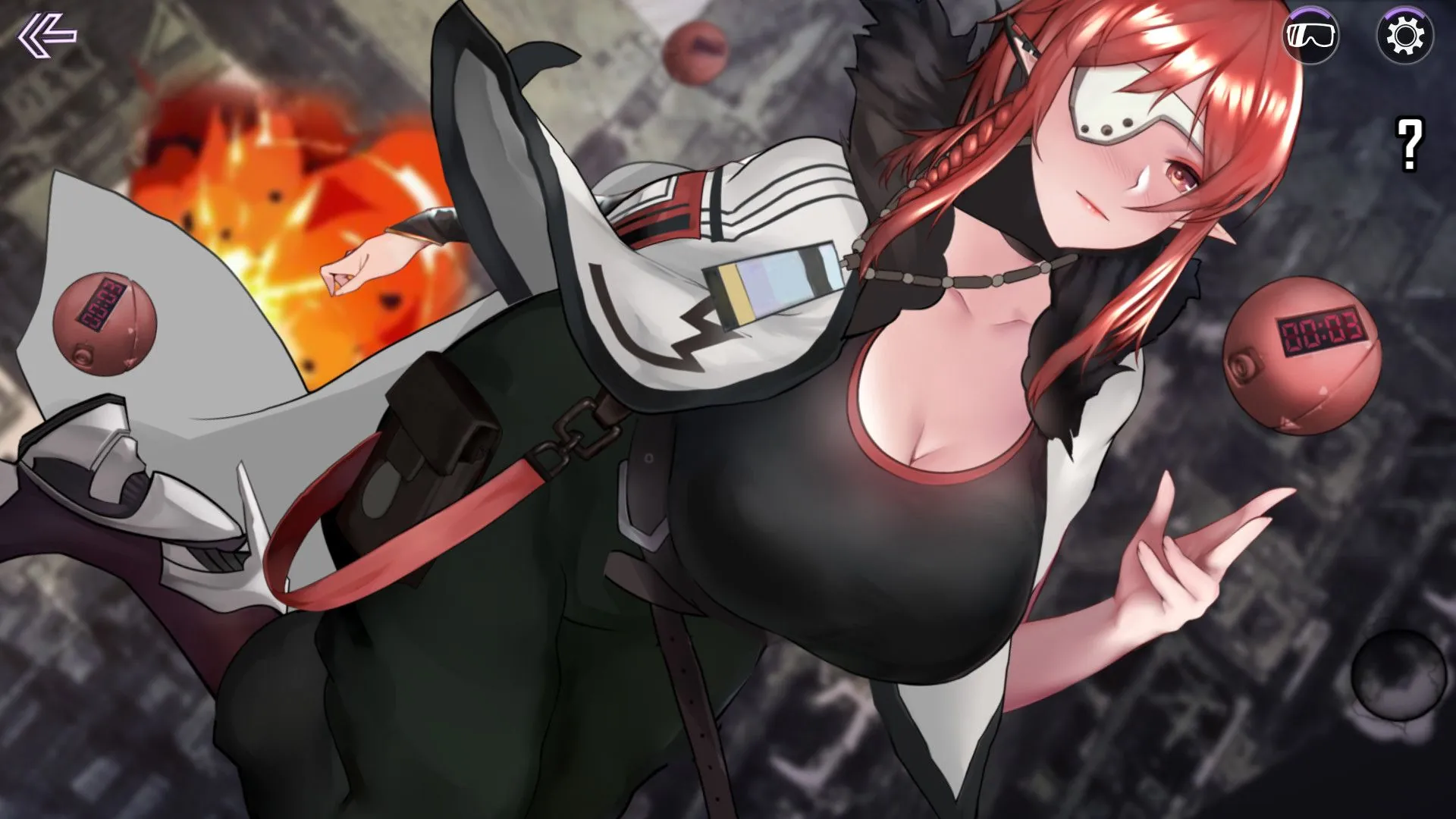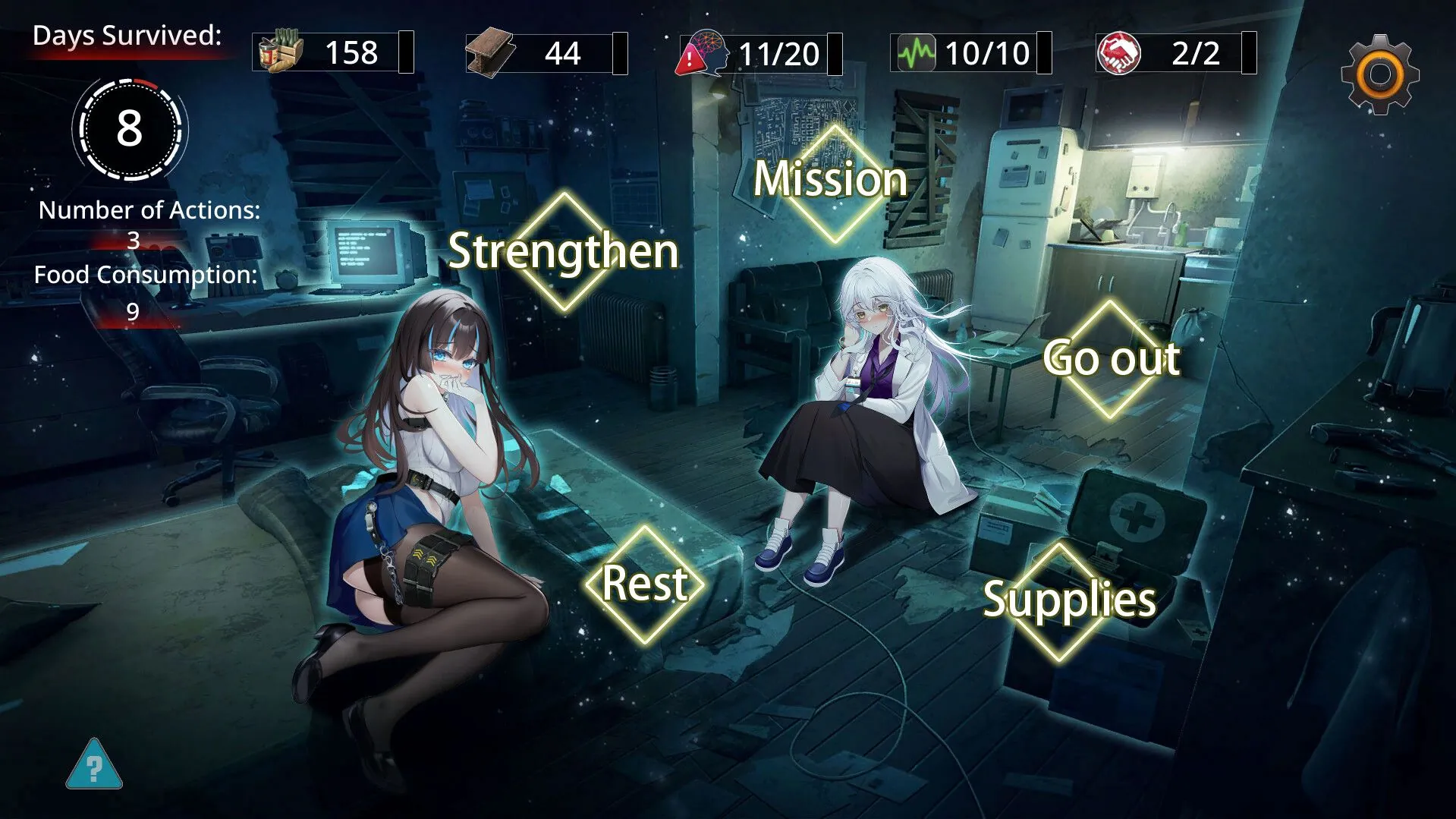
Fatal Countdown – immoral List of Desires review
Explore the immersive narrative, gameplay mechanics, and player experience of Fatal Countdown – immoral List of Desires
Fatal Countdown – immoral List of Desires is a unique survival simulation game that combines a gripping narrative with tactical gameplay. Set in a city devastated by a mysterious virus, the game challenges players to navigate a world where human desires and morality collide. This article dives into the core elements of Fatal Countdown – immoral List of Desires, revealing what makes it stand out in its genre and why it captivates players seeking depth and immersion.
Unraveling the Story and Setting of Fatal Countdown – immoral List of Desires
Ever found yourself completely sucked into a game’s world, to the point where you actually pause to think about a decision because it feels real? 😳 That’s the unique magic of Fatal Countdown – immoral List of Desires. It’s not just about surviving; it’s about wrestling with your own conscience in a world that’s lost its mind. The Fatal Countdown story pulls you into a beautifully horrific tapestry of decay and desperation, making every choice weigh a ton.
I remember my first time booting it up, thinking I was in for a standard zombie shooter. Boy, was I wrong. Within the first hour, I was hiding in a crumbling apartment, listening to the screams outside, and genuinely stressed about whether to share my last can of food with a stranger. That’s the power of its survival simulation story—it makes the struggle personal. 🧟♂️
### What is the Premise of Fatal Countdown – immoral List of Desires?
So, what’s it all about? 🤔 The core of the immoral list of desires game plot is terrifyingly simple. A mysterious and brutal pathogen, dubbed the Crimson Tears virus, tears through a once-bustling metropolis. The government’s response is swift and severe: a total lockdown. Walls go up, communication goes down, and you’re left inside. This isn’t just a physical quarantine; it’s a psychological prison.
The Crimson Tears virus doesn’t just kill people. It rewires them. It acts as a psychological amplifier, stripping away societal conditioning and unleashing the host’s most primal, hidden urges. 😈 Greed, wrath, paranoia—these aren’t just concepts anymore; they are contagious symptoms. This transformation of humanity is the true heart of this psychological horror game. You’re not just fighting infected monsters; you’re navigating a landscape of humans who have been morally unshackled.
The game setting quarantine zone is a character in itself. We’re not talking about a few fenced-off blocks. This is a fully realized, decaying urban sprawl where the rules are gone. Lawlessness reigns supreme, and every shadow could hide a desperate survivor or something far worse. Your goal isn’t just to escape; it’s to understand what happened and, more importantly, who you become along the way.
| Story Element | Impact on Gameplay |
|---|---|
| The Crimson Tears Virus Outbreak | Creates the core threat; enemies are not mindless but driven by twisted desires, requiring strategic approaches to combat and stealth. |
| The City-Wide Quarantine | Limits player movement and resources, forcing exploration of dangerous areas and interaction with other trapped survivors. |
| The “Immoral List” Concept | Directly ties into the morality system; player choices feed into a personal “list” of actions, altering character stats and story outcomes. |
| Collapse of Social Order | Factions form based on ideologies (e.g., militaristic control, anarchic freedom), and the player must choose who to ally with or betray. |
### How Does the Virus Affect the Game World?
The Crimson Tears virus is the engine of everything. ❤️🔥 This isn’t your typical zombie plague. The infected aren’t shambling, braindead husks. They are heightened, dangerous versions of their former selves, acting on their deepest, darkest impulses. A once-kind shopkeeper might now hoard supplies with violent obsession, while a quiet neighbor could become a predator driven by amplified aggression.
This creates an atmosphere of profound dread that defines it as a premier psychological horror game. You can’t predict anyone. A person asking for help might genuinely need it, or they might be luring you into a trap to steal your boots. 😨 Trust is the most valuable and rarest currency in the quarantine zone. The environment constantly reminds you of this, with graffiti-scrawled warnings, abandoned makeshift camps, and the ever-present echo of sirens and screams.
The world itself is sick. The game setting quarantine zone is littered with the evidence of the outbreak’s rapid spread: overrun emergency clinics, hastily abandoned checkpoints, and homes frozen in moments of panic. Scavenging for supplies isn’t a simple looter-shooter mechanic; it’s a tense, narrative-driven experience. I’ll never forget cautiously entering a child’s bedroom to look for medicine, only to find a heartbreaking drawing of their family, now presumably lost to the virus. It’s these small, silent stories that make the world feel tragically real.
### What Role Do Player Choices Play in the Narrative?
This is where Fatal Countdown – immoral List of Desires truly separates itself from the pack. Your game narrative choices are everything. 🎮 They don’t just change a line of dialogue or a ending slide; they actively shape your character’s morality and the world’s response to you.
The game presents you with constant, gut-wrenching dilemmas. Do you risk your life to divert power to a community shelter, knowing it will leave your own safehouse vulnerable? 😬 Do you steal vital antibiotics from a group of survivors who seem weak, justifying it as necessary for your own mission? These aren’t easy good/evil binaries. They are messy, grey-area decisions where survival often directly conflicts with ethics.
Your choices build what the game calls your “moral compass,” which influences how other characters perceive and interact with you. Act with compassion, and certain factions may offer you help. Choose ruthless self-preservation, and doors will slam shut while others might respect—or fear—your strength. This system ensures that the immoral list of desires game plot is uniquely your story.
Pro Tip: There is no “right” way to play. Your first playthrough should be purely reactive. Go with your gut instinct and live with the consequences. It makes the experience incredibly personal and impactful.
The game narrative choices are seamlessly woven into the survival simulation story. Needing food isn’t just a meter to manage; it’s a narrative device that forces you into situations where you might have to betray someone. It’s this brilliant integration of mechanics and storytelling that creates such a haunting and memorable experience. You’re not just playing a story; you’re living it, for better or worse.
Ultimately, the Fatal Countdown story is a masterclass in interactive storytelling. It’s a deep, unsettling, and profoundly human experience set against the backdrop of an inhuman crisis. It holds a mirror up to the player and asks, “What are you capable of when everything falls apart?” And the answer, shaped by every single one of your choices, is what makes this journey so unforgettable. ✨
Fatal Countdown – immoral List of Desires offers a compelling blend of survival simulation and narrative-driven gameplay that challenges players to confront moral complexities in a dystopian setting. Its unique story, combined with meaningful player choices, creates an immersive experience that stays with you long after playing. Whether you are drawn to the psychological depth or the tactical challenges, this game provides a rich, engaging journey. Dive in and explore your own list of desires within this haunting world.
